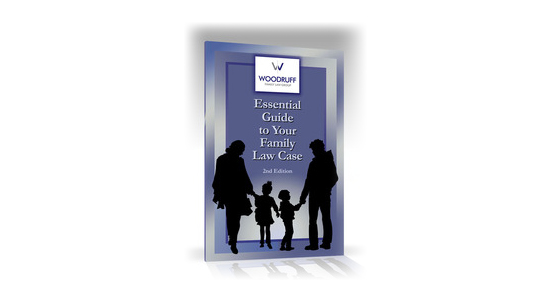Children’s Online Privacy Protection Act
By: Y Michael Yin, JD, Woodruff Family Law Group
15 U.S.C. §§ 6501-6506.
Children these days have more access to the rest of the world than ever before. The internet and mobile technologies have inarguably changed how we interact with each other. This access is a double-edged sword. On one hand, we saw how amazing the technology can be when it is utilized to conduct virtual classrooms and meetings during the ongoing COVID-19 pandemic. On the other hand, we have seen how pervasive targeted advertisements and shoddily written news have shaped our environment and our social discourse. What are some of the protections in place to prevent our children from being those targeted? And what does this mean for your family law case in Guilford County – or anywhere in the world?
What is COPPA?
The Children’s Online Privacy Protection Act (COPPA) was an act passed to prevent the unauthorized collection of personal information of children under 13 years of age by websites directed at children, or any website that has actual knowledge that it collects personal information from children.
What do websites collect (that the act covers)?
Email addresses, physical addresses, first and last names, telephone numbers, Social Security numbers, any identifier that the Federal Trade Commission determines permits the physical or online contacting of a specific individual, and/or information concerning the child or the parents of that child that combines with an identifier describing anything listed above.
What are websites authorized to collect?
COPPA requires that any website directed at children or known to be used by children give notice to parents of what information is collected, how that information will be used, and the way that information can be disclosed. COPPA also requires that websites obtain verifiable parental consent before the collection, use, and disclosure of a child’s personal information.
How is that feasibly done? Notice is usually posted under a website/company’s Privacy Policy – yes, the one that almost no one will read. As for consent, unfortunately the text of the act itself does not give specific direction as to how parental consent should be obtained, just that the request for consent be reasonable in terms of the technological environment. To this day, some examples include verifications of age, credit card numbers, email verifications, and calling a phone number to verify. Each website will have its own method.
Consent is not always required. One-time collections of email addresses or other contact information—which will be deleted later—and collections of email addresses and contact information for the purpose of obtaining consent do not require prior consent. Any information collected for the safety and security of the child or the website is also permitted.
What does this mean to you as a parent and to your family law case?
Awareness is the first priority. Websites that are directed towards children (or know that children access them) must give notice to when, what, and how information is collected. Knowing that, you ought to know whether or not you are accepting a particular website’s collection and use of personal information. If you wish to be more diligent in your child’s online life, it means actively reading a website’s privacy policy.
Second are actions you can take. Give or deny parental consent. Furthermore, COPPA requires those websites that collect information from children to allow their parents to: 1) obtain a description of the specific types of personal information collected; 2) refuse those websites any further use and collection of a child’s personal information; and 3) obtain any records of personal information collected from their child. Finally, for your family law case, have a plan for how to address the online realm in your custody arrangement. If the topic is important to you, make sure that co-parents are involved in the child’s virtual life. Ask which websites the child frequents. (YouTube, for example, was recently fined for COPPA violations.) Read those privacy policies to see if they have posted whether they collect information from children. Look for how to give consent. Discuss whether those websites are worth using and consenting to, once you understand their collection and use of personal information. And be ready to make demands to stop collection if you see fit.









